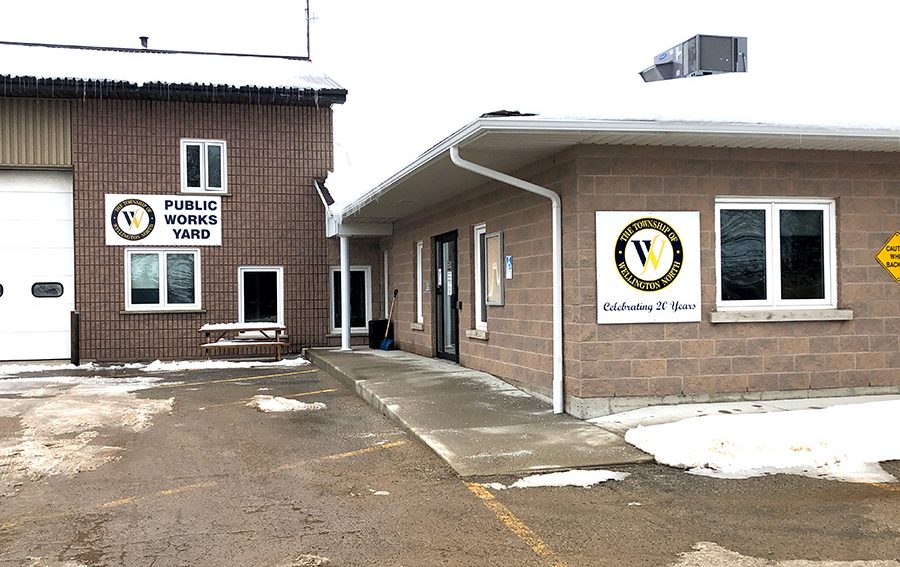KENILWORTH – Faced with aging infrastructure, inflation, a growing population, and new staffing positions, residents are likely to see an increase to tax bills in line with inflation.
Finance director Farhad Hossain presented his first budget with the township since being hired last year, and called it a “balancing act” requiring trade-offs and concessions.
The municipal budget addresses the cost of government, services provided to residents, and capital projects; council is left to deliberate over how much of a tax increase is required to help cover it all.
The township retains 35 cents for each dollar collected, with 50 cents going to the county, and the remainder is split between school boards and conservation authorities.
“Our resources are limited and our wants are expanding,” Hossain told a partial gathering of council during a Feb. 27 special budget meeting.
Councillors Steve McCabe and Sherry Burke were absent from the meeting.
Council was told budget pressures include increased wages and benefits, municipal insurance, hydro rates, inflation and construction costs.
Hossain split the budget into two parts: a base budget (with an increase of just over seven per cent) and the base budget with additional staff (an increase of 10.6%).
Operating budget
Township staff have suggested an $8.65 million operating budget, accounting for an increase to the tax levy of 7.1%, or $572,708 over last year.
That increase would mean an additional $71 for a home valued (in 2016) at $271,636.
The average tax bill — including county, conservation authority and education portions — is currently $3,400 for Wellington North residents.
Hossain then factored in three additional full-time staffers: an executive officer/assistant, community services director, and a co-op position.
The positions bring an annual cost of around $286,000 and raise the levy demand to around $859,000 — or an increase of 10.6%.
With staff positions accounted for, taxpayers would see an additional $115 added to their tax bills for a home valued at $271,636 — a difference of $44 when compared to the base budget.
Mayor Andy Lennox remarked that staff additions shouldn’t have been a separate consideration, but rather an “investment that needs to be made for future gain.”
Capital budget
Hossain relied on three different information sources to provide insight into the town’s aging infrastructure and financial demands not only to keep it from breaking down, but to support a growing population.
In short, Hossain said yearly capital spending falls short by $4.5 million, or $49 million over the next decade at present funding levels.
Last year, $11.6 million of an approved $15 million capital budget was spent — but the township’s asset management plan suggests $16.5 million per year should be spent to keep up with current and future infrastructure needs.
Major capital projects — such as water towers, operations centres, wastewater treatment plant and building upgrades — are forecasted to cost $77 million alone.
And the upkeep of current bridges, roads, sidewalks, and equipment accounts for $117 million over the next decade.
This year’s “capital wishlist,” as Hossain put it, is $26 million — $7 million in projects are already pre-approved or carried over from last year.
The township can cover $10 million of the requested amount, according to Hossain.
“Clearly, our need exceeds the funds we have available,” he said, suggesting some major capital projects, such as a new outdoor pool for Mount Forest and upgrades to the Arthur wastewater treatment plant, be put off.
Those two projects alone would reduce new capital spending requests by $8.28 million, from $26 million to $17.72 million.
Also complicating the math is the five-year phased-in approach to increased development charges, implemented by the province last year.
At least in the immediate term, it’s now taxpayers fronting the cost of growth, rather than developers.
Tied to inflation
Lennox and councillors Lisa Hern and Penny Renken all said Hossain’s proposal of a 10.6 per cent increase at the higher end isn’t going to be approved.
“I think that’s more than some of our residents can withstand,” the mayor said.
Lennox can live with an increase at the level of, or slightly above, inflation of 6.8 per cent.
He acknowledged the increase “doesn’t help close the [infrastructure] gap” but said, “lots of people are feeling a lot of pain … now we’re asking them to pay more because our costs have gone up.”
The mayor wants to see the next budget iteration include additional staffing and options to balance the levy burden against additional staffing.
The mayor prompted councillors Hern and Renken to provide input; both wanted several options presented for rate increases.
Hern remarked it was “the worst, most complicated budget” she has ever seen and she couldn’t support anything around eight per cent.
“I personally can’t even afford that, so I don’t think I can wish that upon anyone,” she said, adding an increase tied to inflation would be more acceptable.
“Things are just too hard and too uncertain on so many different levels right now.”
The budget will return to council on March 20.




